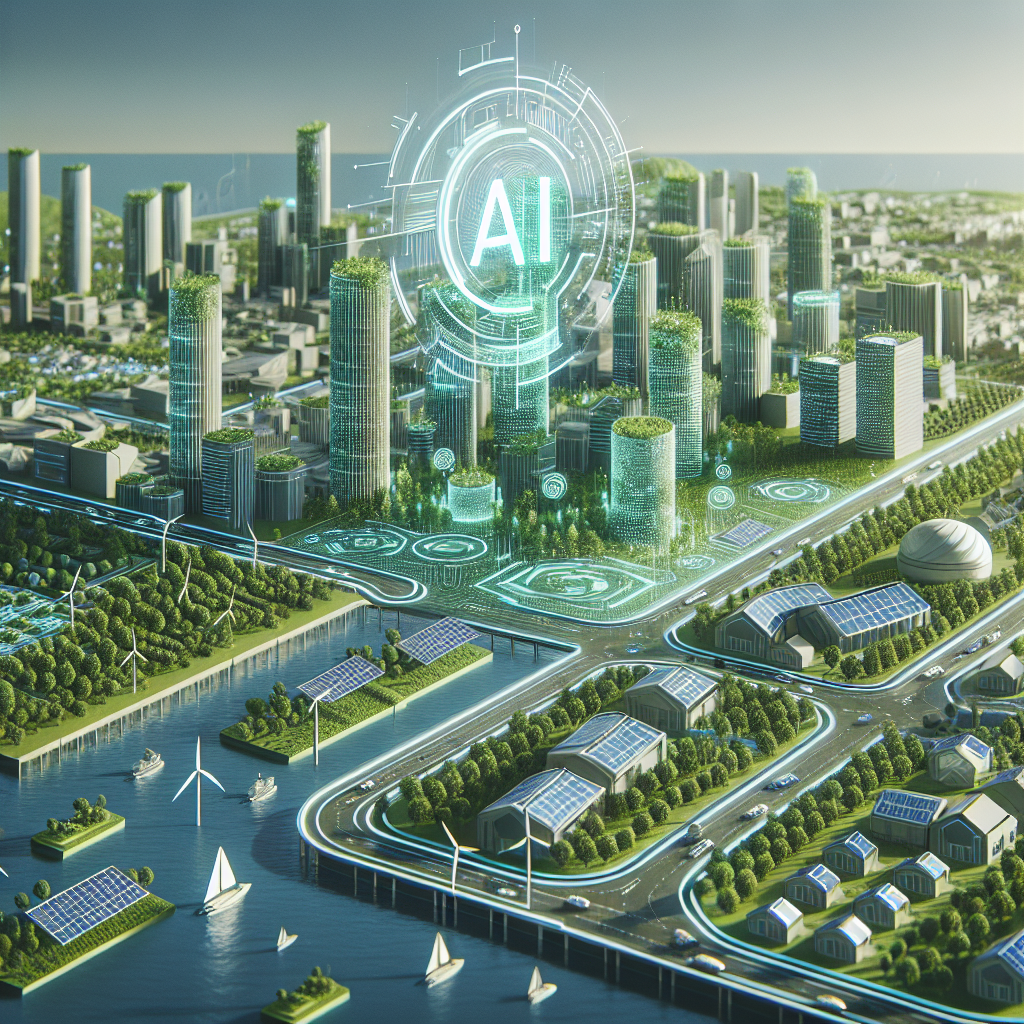In recent years, the rapid advancements in artificial intelligence (AI) technology have revolutionized various industries, including urban planning. AI has the potential to enhance sustainability and resilience in urban areas by analyzing vast amounts of data, predicting future scenarios, and optimizing resource allocation. However, as with any technology, there are ethical considerations that need to be addressed to ensure that AI is used responsibly and in a way that benefits all members of society.
Ethical AI in urban planning refers to the use of AI technology in a manner that upholds ethical principles and values, such as fairness, transparency, accountability, and privacy. By integrating ethical AI practices into urban planning processes, cities can create more sustainable, resilient, and inclusive environments for their residents. In this article, we will explore the various ways in which ethical AI can be leveraged in urban planning to enhance sustainability and resilience, as well as address some common FAQs about this topic.
Enhancing Sustainability with Ethical AI
Sustainability is a key goal of urban planning, as cities strive to minimize their environmental impact and create a livable environment for their residents. Ethical AI can play a crucial role in achieving sustainability goals by analyzing data on energy consumption, transportation patterns, waste management, and other factors to identify areas for improvement. For example, AI algorithms can help cities optimize their public transportation systems to reduce congestion, lower emissions, and improve accessibility for all residents.
Furthermore, ethical AI can be used to develop predictive models that forecast future environmental trends and guide decision-making processes. By analyzing historical data and current trends, AI algorithms can help urban planners anticipate the potential impacts of climate change, natural disasters, and other environmental challenges. This foresight enables cities to implement proactive measures to mitigate risks and enhance their resilience to future threats.
In addition, ethical AI can support sustainable urban development by optimizing resource allocation and infrastructure planning. By analyzing data on population growth, land use, and economic activity, AI algorithms can help cities identify optimal locations for new developments, green spaces, and public services. This data-driven approach ensures that urban planning decisions are based on objective criteria and support the long-term sustainability of the city.
Enhancing Resilience with Ethical AI
Resilience is another critical aspect of urban planning, as cities need to be prepared to respond to unexpected events and crises, such as natural disasters, pandemics, and economic downturns. Ethical AI can enhance the resilience of cities by providing real-time data analytics, predictive modeling, and decision support tools that enable rapid and effective responses to emergencies.
For example, AI-powered sensors can monitor environmental conditions, detect anomalies, and alert authorities to potential risks, such as flooding, air pollution, or infrastructure failures. By integrating these sensors into the urban infrastructure, cities can improve their early warning systems and enhance their ability to respond to emergencies in a timely manner.
Furthermore, ethical AI can support emergency response efforts by optimizing resource allocation, coordinating logistics, and prioritizing actions based on real-time data. By analyzing information from multiple sources, such as social media, news reports, and sensor data, AI algorithms can help authorities make informed decisions and allocate resources where they are most needed during a crisis.
Overall, ethical AI has the potential to enhance the sustainability and resilience of urban areas by providing data-driven insights, predictive modeling, and decision support tools that enable cities to make informed decisions and respond effectively to challenges. However, to realize these benefits, it is essential to address the ethical considerations associated with AI technology and ensure that it is used responsibly and in a way that upholds the values of fairness, transparency, and accountability.
Common FAQs about Ethical AI in Urban Planning
Q: What are some of the ethical considerations associated with AI in urban planning?
A: Some of the key ethical considerations related to AI in urban planning include fairness, transparency, accountability, and privacy. It is important to ensure that AI algorithms are unbiased, transparent in their decision-making processes, accountable for their actions, and respectful of individuals’ privacy rights.
Q: How can cities ensure that AI technologies are used ethically in urban planning?
A: Cities can promote ethical AI practices by establishing clear guidelines, standards, and regulations for the use of AI technology in urban planning. This includes conducting ethical impact assessments, engaging with stakeholders, and implementing transparency measures to ensure that AI systems are used responsibly and in a way that benefits all members of society.
Q: What are some examples of AI applications in sustainable urban development?
A: AI applications in sustainable urban development include optimizing public transportation systems, predicting energy consumption patterns, identifying optimal locations for new developments, and monitoring environmental conditions. These applications help cities reduce their environmental impact, improve resource efficiency, and create a more livable environment for their residents.
Q: How can AI technology support emergency response efforts in urban areas?
A: AI technology can support emergency response efforts by providing real-time data analytics, predictive modeling, and decision support tools that enable rapid and effective responses to emergencies. This includes monitoring environmental conditions, detecting anomalies, coordinating logistics, and optimizing resource allocation during a crisis.
Q: What are some best practices for using AI ethically in urban planning?
A: Some best practices for using AI ethically in urban planning include conducting ethical impact assessments, engaging with stakeholders, promoting transparency in decision-making processes, and prioritizing fairness and accountability in the use of AI technology. By following these best practices, cities can ensure that AI is used responsibly and in a way that benefits all members of society.
In conclusion, ethical AI has the potential to enhance the sustainability and resilience of urban areas by providing data-driven insights, predictive modeling, and decision support tools that enable cities to make informed decisions and respond effectively to challenges. By addressing the ethical considerations associated with AI technology and promoting responsible use practices, cities can create more sustainable, resilient, and inclusive environments for their residents.

